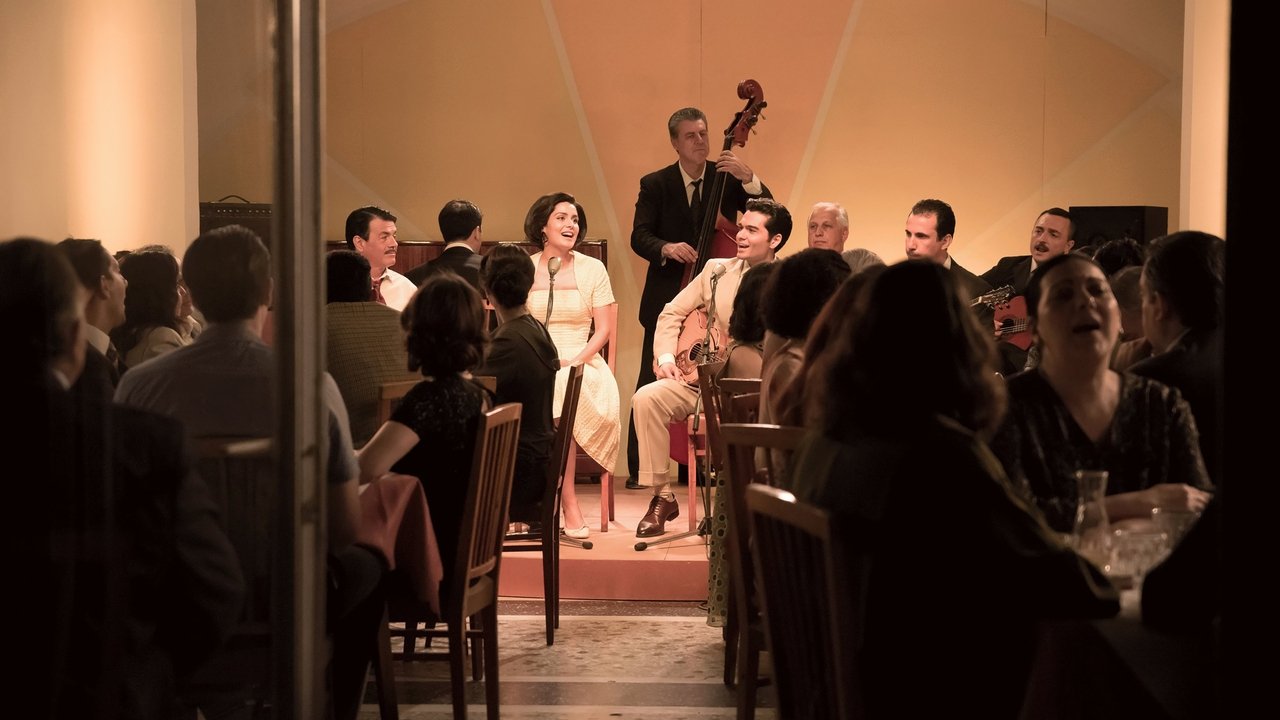
Stelios

The touching story of a child from a Pontic refugee family who managed to survive and thrive against all odds, thanks to his immense talent and resilience in the face of social and personal challenges. Music, love, family, friends, fishing, creativity, people of the night, hardcore fans, and intense conflicts come together to create the mosaic of his life. This film is a tribute to legendary singer, Stelios Kazantzidis, whose voice touched the hearts of all Greeks around the world. A film for those who loved him and those who wish to discover him.









Stelios: Songs Sing You, Cure Your Pain Stelios: Songs Sing You, Cure Your Pain
The best Greek folk artist of all time… No folk artist has been loved as much as he has… There has never been another folk artist who voiced the problems, needs, hopes and dreams of the people. That is why he has become a symbol for the people. He was the first artist to make Zeki Müren cry with his songs in Turkish, the first artist to cover Makber in an album after Hamiyet Yüceses… He has never been forgotten…
These lines that I quoted from AJS Music’s YouTube page are a summary of Stelios Kazantzidis. The life of Rembetiko musician Stelios Kazantzidis, who was active in the music world from 1945 until his death in 2001, was filmed last year and became one of the most watched movies in Greece. The script of the film Stelios, directed by Yorgos Tsemberopoulos, was written by Katerina Bei. Starring Christos Mastoras, Klelia Renesi, Asimenia Voulioti, Agoritsa Oikonomou, Dimitris Kapouranis and Anna Symeonidou, this film tells the story of Stelios Kazantzidis’ journey as a singer and musician, full of hardships, from his childhood in 1945 to his adulthood in 1975. The film was released yesterday by Tanweer with the distribution of TME Films.
Stelios is a Greek child from Pontus who struggles for a life full of hardships. Trying to cope with war, destruction and misery, Stelios’ life changes when he discovers his talent for music. While trying to find a place for himself in the Greek music world, he is forced to confront his inner longings, relationship difficulties, the expectations of his loyal fan base and the harsh face of the music industry.
The story of the Stelios film, like the Aznavour (Mehdi Idir, Grand Corps Malade, 2024) film we watched last month, tells a journey from zero to the top. Just like the Aznavour film, this story also draws its power from the music composed by Stelios. The music played in the film presents a report not only on Stelios' life, but also on the pain, unhealed wounds, longings, resentments, lost loves, the functioning system, rebellions and disappointments of man.
This film reveals the prices Stelios paid throughout his life, the injustices he suffered and the wounds he healed. It also reveals his aspect of discovering new talents. In addition, the film also features the youth of some important names of Greek music. For example, Christos Nikolopoulos, who also composed a song for Haris Alexiou (later the song “Susma”, which was performed by Aşkın Nur Yengi and whose lyrics were written by Sezen Aksu), Marinella, who became famous with the song “Stalia”, and singer Kaiti Grey, who passed away in 2025, are also in the film. However, it would have been nice if they had included Haris Alexiou in the story.
So how does the script work apart from the music? The film uses a lot of flashback scenes. As it moves from the 40s to the 70s, it sometimes takes us directly to 1975. While watching the story, we witness Stelios climbing the steps of fame with patience and pain, paying a heavy price. But let me be honest, the script of the film did not seem very original to me. Still, some of the scenes were quite harsh. For example, the night scenes where armed people raid the venue, Stelios being forced to sing other songs, and the unhappy ending of a marriage were all medium intensity scenes. Other than that, the story had a very similar, familiar structure.
The classic warm color palette and simple camera angles impressively reflect the atmosphere of Greece, the energy of taverns, greedy record company managers, factory workers working hard, and recording studios. In one scene in the film, the crowd gradually growing as the song played was a very nice detail. In addition, Stelios' facial expressions were very well reflected. I could clearly see the pain, disappointment, and passion for music on his face with medium and close-up shots. In other words, this narrative actually passed to me.
Since we have moved from visuals to acting, I would like to say a few things about this. All of the actors are also musicians or singers; This was definitely a necessary choice. Christos Mastoras, who is currently a singer (he also performed a duet with another Rembetiko singer, Haris Alexiou), really stands out with his acting. When compared to the archive footage in the film, it is clear that he has established a strong bond with Stelios Kazantzidis. Mastoras interpreted Stelios’ songs as if he were blowing a flute, not only with his acting but also with his voice.
One of the actors I liked the most was Klelia Renesi, who played the role of Kaiti. She is also very interested in music and did her part very well. Asimenia Voulioti, on the other hand, stood out with her velvety voice, but her acting was not very striking. However, she brought Christos Nikolopoulos’ youth I cannot help but mention Periklis Sioundas. He also brought a very clean and sincere interpretation to his role as a musician. He deserves appreciation for his sincerity.
Now let's come to the strongest aspect of the film: the music. It's not for nothing that I saved it for last, because in this film, the music is used as a narrative language. All the actors sing and add completely different interpretations to Stelios' compositions. Especially the song interpretations of Christos Mastoras and Asimenia Voulioti were very sincere and impressive. I used to love Rembetiko and Greek music, but I fell in love with it thanks to this film. So what songs are there? Yparho (also the original name of the film), Siko Horepse Koukli Mou, the Greek version of the folk song "Kalenin Bedenleri" (I heard it from Candan Erçetin when I was a child),
Valuable works such as Opia Ke Na Se, the original of the song Akdeniz Rüzgarları, sung in Turkish by Nil Burak 30 years ago, are included in the film. However, I wish the film had included Turkish songs. Stelios Kazantzidis also sang Turkish songs in his album “Ta Tragoudia Tis Anatolis”. I expected the “Bekledim de Gelmedin” or Makber versions, but they were not included. Of course, since this is a Greek film, he may have wanted to address his people, language and cultural memory.
This is the film Stelios. The story of a man who tries to live in Greek lands as a Pontic Greek immigrant, who resists to bring bread to his home until he becomes a musician; and how he becomes the voice of pain, longing, fatigue and of course love with the songs he makes throughout his career as a musician. This film is like a letter of longing written to Stelios. It has similarities with the film Aznavour; therefore, it may not be a very original production. However, it stands out as an impressive musical film in terms of getting to know the culture of the neighboring country and Rembetiko music. For those who love Rembetiko music and want to get to know Stelios and Greek music, it is waiting for you in the cinemas. Let's not forget: Songs sing to us and heal our pain.